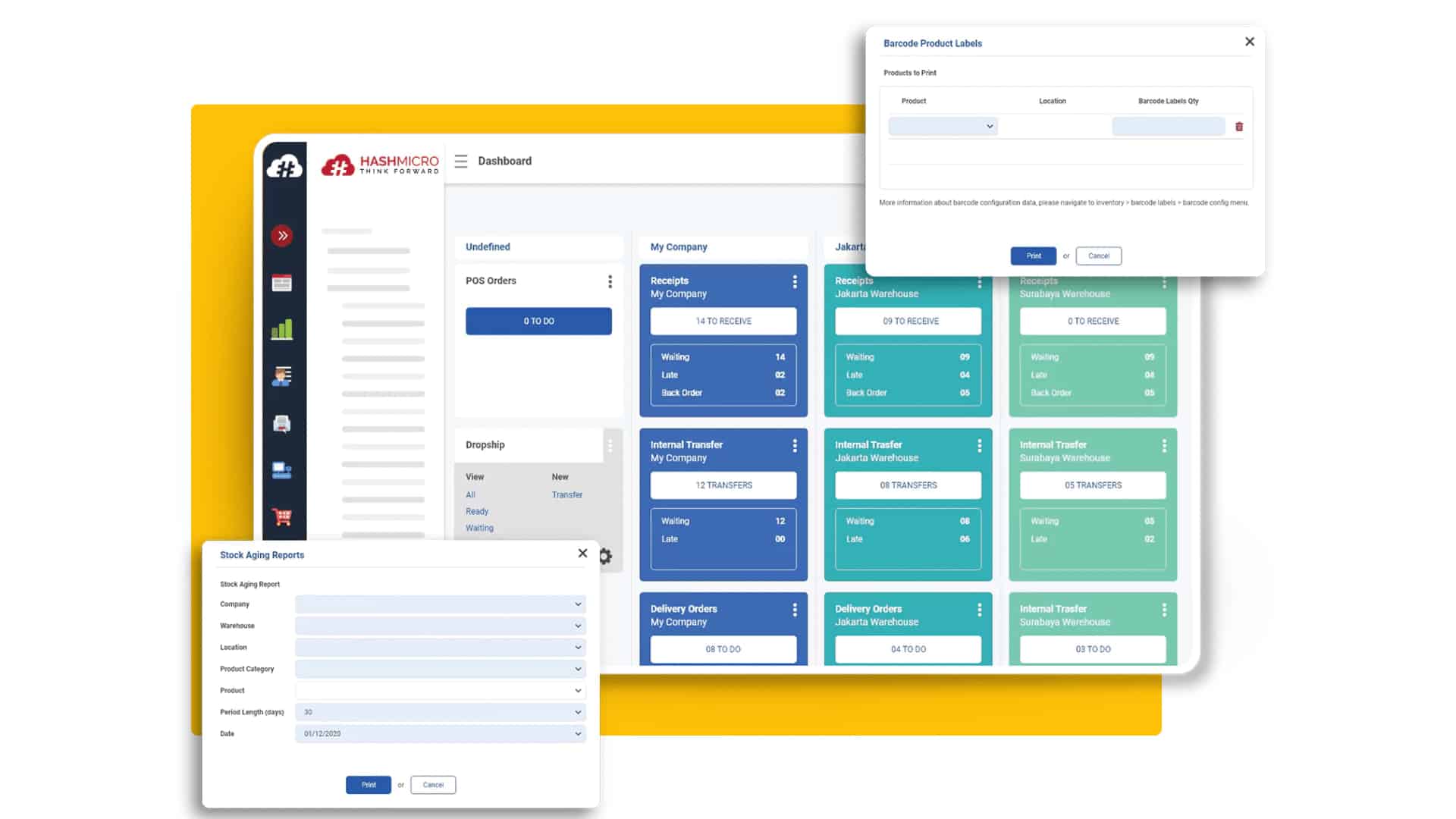In the fast-paced economic landscape of Singapore, effective inventory management stands as an indispensable cornerstone for businesses seeking sustainable growth and competitiveness.
However, the persistent challenge of inefficient inventory handling continues to haunt numerous enterprises, impeding their ability to optimize resources, meet customer demands, and maximize profitability.
How often have businesses grappled with overstocked shelves or faced critical stockouts, grappling with the repercussions of inadequate inventory control? According to 2021 studies by the Singapore Business Federation, a staggering 40% of businesses in Singapore struggle with poor inventory management practices, resulting in increased operational costs and lost revenue opportunities.
Let’s delve into the realm of inventory management system, exploring its significance, methods, and impact on Singapore’s vibrant economy in this article.
Key Takeaways
|
Table of Content:
Table of Content
What is Inventory Management?
Inventory management is the process of overseeing a company’s inventory, which encompasses the ordering, storing, selling, and utilizing of raw materials, components, and finished products. It also includes the management of the storage and processing of these items.
Additionally, the various types of inventory management have their own advantages and disadvantages, and the choice of strategy depends on the company’s specific requirements.
Inventory management aims to ensure that the right products are available at the right time, in the right quantities, and at the right cost. Therefore, effective stock control can help a business to improve its operations, reduce costs, and increase profitability.
The Benefits of Inventory Management
Inventory management is a crucial aspect of running a successful business that deals with physical products or materials. In addition, properly managing inventory can help businesses meet customer demand, minimize costs, and maximize profits. Therefore, using the best software will give a lot of benefits, for instance:
Seamless inventory tracking
Stock control systems enable businesses to track inventory levels in real time, ensuring they always know how much inventory they have on hand, what products are in stock, and when to reorder. This also helps businesses to avoid stockouts and prevent lost sales.
Operational dashboard
Inventory management provides an operational dashboard that comprehensively views inventory levels, sales, and other key inventory metrics. This helps businesses make informed decisions about storage and identify trends or issues that must be addressed.
Minimized waste
Efficient inventory management reduces waste by minimizing a business’s excess stock. By optimizing inventory levels, businesses can reduce the amount of inventory that becomes obsolete or spoiled and minimize the need for expensive storage facilities.
Optimized stock levels
Stock control systems empower businesses to optimize their stock levels based on demand, lead times, and market trends. By maintaining the right amount of inventory, businesses effectively reduce inventory holding costs.
This includes minimizing expenses related to excess inventory, such as storage, insurance, and potential obsolescence, ultimately leading to more efficient operations and improved profitability.
Also Read: Why is Stock Inventory Management Important in the Business?
The Methods of Inventory Management
Effective inventory management requires businesses to have a system that allows them to track inventory levels, sales data, and product demand. Thus, there are several methods that businesses can use to ensure they have the right products on hand at the right time. For example, here are a few of the most common methods:
Just-in-Time management (JIT)
JIT is a strategy that aims to minimize inventory holding costs by ordering inventory only when it is needed. This approach is particularly useful in industries where the cost of holding inventory is high, such as perishable goods, high-value items, or those that require specialized storage conditions. JIT can help businesses reduce waste, improve efficiency, and respond quickly to changes in demand.
Materials Requirement Planning (MRP)
MRP is a computer-based system that uses data on demand, lead times, and inventory levels to calculate the optimal time and quantity of inventory to order. This approach is particularly useful in industries where many components and subassemblies are involved in the production process, such as manufacturing or construction.
Economic Order Quantity (EOQ)
EOQ is a mathematical formula that helps businesses determine the optimal order quantity for inventory. It takes into account factors such as demand, ordering costs, and holding costs to find the most cost-effective order size. Using EOQ, businesses can ensure they have enough inventory to meet customer demand while minimizing the costs associated with ordering and holding inventory.
Days Sales of Inventory (DSI)
Days Sales of Inventory DSI measures how long it takes a company to sell its inventory. It can be calculated by dividing the average inventory level by the average daily sales. By tracking DSI, businesses can identify trends in inventory turnover and adjust their inventory levels accordingly. Thus, if DSI is increasing, it may indicate that inventory is not moving as quickly as it should be, and the business may need to adjust its strategy.
Also read: Inventory Aging Report: What is it and How to Calculate It
Manage Inventory with a Comprehensive Inventory Management System
HashMicro’s cloud-based Enterprise Resource Planning (ERP) software is a pivotal solution provider in Singapore’s dynamic business landscape. Specifically tailored to suit businesses of varying sizes, its comprehensive inventory management system addresses Singapore’s diverse market’s unique needs and complexities.
With a user-friendly interface and customizable features, HashMicro’s software adapts seamlessly to different industries, enabling precise inventory control tailored to individual requirements.
Some of the key features of HashMicro’s cloud based inventory management software includes:
- Barcode Management
- Lot and Serial Number Tracking
- Stock Request Control
- Stock Forecasting
- Goods Valuation
- Stock Aging Analysis
In addition, HashMicro’s software solution is designed to integrate with a range of other business software, such as warehouse management systems, CRM, and POS systems, to provide a complete solution for businesses. This can help businesses streamline their operations and reduce the amount of time and effort required to manage their inventory.
Conclusion
In conclusion, inventory management is a critical process for any business that involves overseeing the stock of products or materials that a company has on hand. The primary goal is to ensure enough stock to meet demand while minimizing excess stock, which can tie up valuable resources and lead to losses.
Hashmicro’s inventory management system can be a great help whether you’re a small business owner or a large corporation. In addition, taking the time to understand and implement this effective software can help you streamline your operations, reduce costs, and improve customer satisfaction.
Try a free demo now and kick-start your company’s inventory operations.

FAQ about Inventory Management
-
What are the common inventory management challenges faced by businesses in Singapore?
Businesses in Singapore often encounter challenges such as maintaining optimal stock levels, mitigating stockouts, effectively managing perishable goods, dealing with fluctuating demand, and navigating supply chain disruptions, all of which affect inventory management efficiency.
-
How does efficient inventory management impact businesses in Singapore?
Efficient inventory management positively impacts Singaporean businesses by improving operational efficiency, reducing holding costs, optimizing storage space, preventing stockouts, effectively meeting customer demands, and ultimately enhancing overall profitability.
-
What technologies or software solutions are available for inventory management in Singapore?
In Singapore, businesses can utilize various inventory management software, including cloud-based ERP systems like HashMicro, Warehouse Management Systems (WMS), Point of Sale (POS) systems, and Customer Relationship Management (CRM) software. These solutions help streamline inventory tracking, demand forecasting, and order fulfillment processes.
-
How can businesses in Singapore optimize inventory control and accuracy?
Businesses in Singapore can optimize inventory control and accuracy by implementing efficient inventory counting practices, leveraging automation and technology for real-time inventory tracking, adopting demand forecasting tools, employing ABC analysis for inventory categorization, and establishing robust supplier relationships to ensure timely stock replenishment.
-
What are the key strategies for successful inventory management tailored to Singapore’s market?
Tailoring inventory management strategies to Singapore’s market involves adopting agile inventory practices, embracing just-in-time (JIT) inventory systems, leveraging data analytics for demand forecasting, implementing vendor-managed inventory (VMI) strategies with suppliers, and integrating inventory management software to streamline operations and decision-making processes.

























































